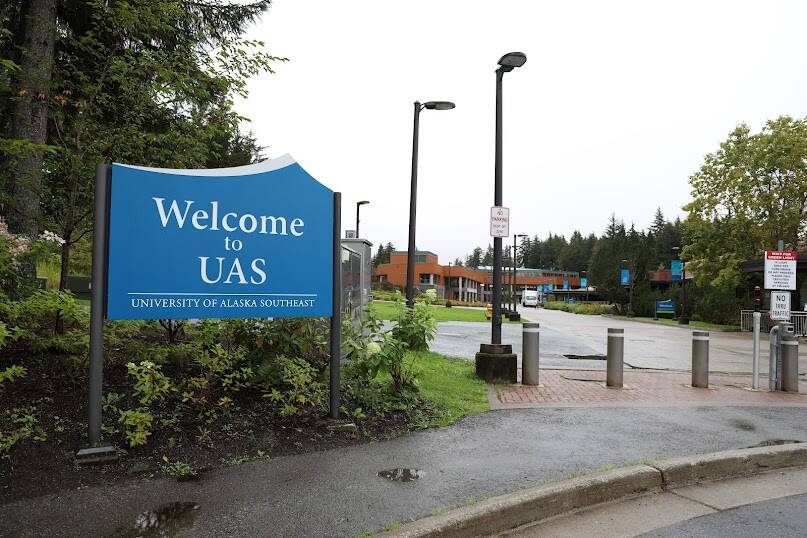The University of Alaska’s administration and its faculty union reached a tentative agreement on a new contract Monday, ending 14 months of negotiations. The sometimes contentious process resulted in both parties filing unfair labor practice complaints, which are still ongoing.
Faculty union president Abel Bult-Ito said he’s “relieved” negotiations are over, “but I don’t think anybody’s very happy about the outcome.” Bult-Ito is professor of neurobiology and neurophysiology at the University of Alaska Fairbanks.
“The raises are not what they should be. We’re looking at 8% cost of living increases and, you know, the best we were able to do was 3% in the first year,” he said.
The contract includes increases of 3%, 2.75% and 2.5% over three years, which are slightly higher than the administration’s original “best and final offer” of 3%, 2.5% and 2%. The contract is retroactive to July 1, 2022. To provide back pay for the salary increase, the university will request as a supplemental budget item in the coming legislative session, according to the university’s press release issued Tuesday. The overall compensation increases will be included on the university’s budget request submitted to the Legislature for funding approval.
“Financially speaking, it’s a minimal package, but it’s the best we could do,” Bult-Ito said. The union, United Academics, conceded to the administration’s salary offer at the end of July.
The union had originally sought salary increases of 5%, between 3% and 7%, and between 3% and 6% over three years, with the latter two years’ increases determined by the consumer price index. Union members have received one 1% increase over the past six years.
Several steps need to occur before the agreement is enacted. For United Academics, the tentatively agreed upon contract needs to go through the union’s executive board and the representative assembly before going to a vote of the membership. For the university administration, next steps include approval by the Board of Regents and the Alaska Department of Administration.
“We are thankful that this process is resolved,” University of Alaska President Pay Pitney said in the release. “We value our faculty and want to ensure a stable working and learning environment.”
Aside from increases to faculty pay, the university said that the tentative agreement includes increases to the pension wage base, expands the use of faculty development funds and provides for changes to the dispute resolution process.
For a few months, both parties’ negotiating teams had been meeting in federal mediation sessions. To get to this tentative agreement, Bult-Ito said the parties were communicating over email.
He said he hopes United Academics’ membership ratifies the tentative contract, which includes this clause: Any future, higher raises given to other employee groups will also be given to United Academics faculty.
“So we have an opportunity to hopefully work with the university and the Legislature to get some more raises for all employees of the university, which is really necessary,” Bult-Ito said. “I’m hoping we can repair our relationship with the administration and move forward together so that we can properly compensate all employees at the university.”
Both the union and the administration filed unfair labor practice complaints with the Alaska Labor Relations Agency – the union in August and the administration in September. The state agency is still collecting briefings for both complaints. Once they’re all in, the hearing officer will be able to complete investigations and issue findings.
“Probable cause that an unfair labor practice occurred will either exist or not. And if she finds that it exists in one or both cases, then she will engage in conciliation with the parties and try to see if they can settle this that way informally,” said Nicole Thibodeau, Alaska Labor Relations Agency administrator and hearing examiner.
If probable cause is found but not reconciled informally, then the Alaska Labor Relations Agency board will conduct a full hearing and issue a decision determining whether an unfair labor practice has occurred and what the remedy is.
• Lisa Phu covers justice, education, and culture for the Alaska Beacon. Previously, she spent eight years as an award-winning journalist, reporting for the Juneau Empire, KTOO Public Media, KSTK, and Wrangell Sentinel. This article originally appeared online at alaskabeacon.com. Alaska Beacon, an affiliate of States Newsroom, is an independent, nonpartisan news organization focused on connecting Alaskans to their state government.

